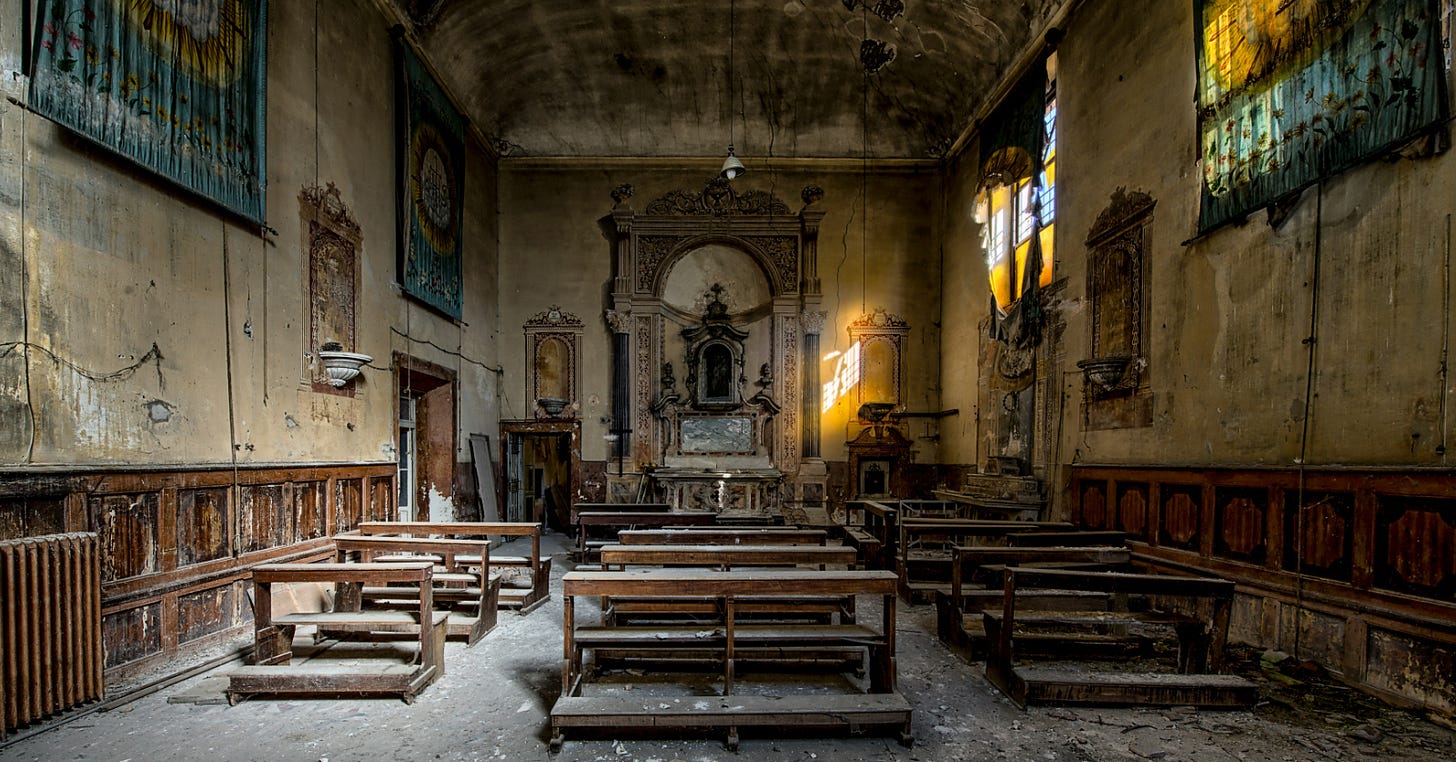Indifference Amidst the Cries
Easter is coming, and it has long been a strange holiday for me. While it is a rather morbid holiday in religious terms (yes, I've heard of the Resurrection), it is doubly so for me because I am reminded that it was the time of my mother's death in 1997. A lot of years have passed since then, and if I turn to look around, nothing is as it was.
The phrase “Nothing stays the same forever” can take on different slants depending on one's state in life. If one's circumstances are horrific, then it has an uplifting connotation, as if things simply have to get better because the only change can be upward. For plenty of people who are relatively happy with their circumstances, such a phrase can be the cause of a shudder. It's the reminder of how little we control in our own lives—how powerless we are in the wake of disaster, sickness, and death.
That sense of powerlessness often endures even if we played a role in our own suffering, whether through mistakes or acts of malevolence. Let's call them sins. It is the season, after all, of frank acknowledgment of the connection between sins and suffering. When we say that, though, it's easiest to think of other people's sins, and our own suffering. When atheists exclaim the evils of the world as proof of the absence of God, we are quick to point to the malevolence of men—other men —or perhaps Man in general, but don't look too closely at this one. “People” are bad, we say generically… disconnectedly.
Yet in that redirection of focus, we overlook the only person whom we have control over. Our own decisions in the present are the only “power” we have amidst absolute powerlessness—among other people's sins, our own (and their) suffering, and an array of catastrophes with no assignable fault. There's nothing we can do about almost all of it.
It's only our responses to the ever-changing circumstances that we can control, as people are ripped away from us, or choose to be departed. Eventually, we are all left with the reality of our own existence—with our own sins and He who suffered to the point of death to rescue us from a just penalty.
One of my favorite poems is by Elizabeth Cheney (b. 1859), titled There is a Man on a Cross:
Whenever there is silence around me
By day or by night—
I am startled by a cry.
It came down from the cross—
The first time I heard it.
I went out and searched—
And found a man in the throes of crucifixion,
And I said, “I will take you down,”
And I tried to take the nails out of his feet.
But he said, “Let them be,
For I cannot be taken down
Until every man, every woman, and every child
Come together to take me down.”
And I said, “But I cannot bear your cry.
What can I do?”
And he said, “Go about the world—
Tell every one that you meet—
There is a man on the cross.”
There is a tragedy that comes through the poem, and a sense of urgency that is arrested by the breadth of the task. It is as if we must do everything but can do nothing.
I think we often feel that way about the battles before us in culture too. I spend a lot of time thinking and writing about culture, this soil from which men grow. Ours was coined a “culture of death” decades ago. It is a culture that denies the reality of sin while it justifies the elimination of people that it finds to be inconvenient—at the beginning and end stages of life. We pretend that this is trivial, that it won't have consequences at some point, and that there is no just debt to be paid for such grave evil, woven into our society.
If we can grow numb to the evils that surround us, it becomes easier to excuse the ones within. We soothe our consciences with comparison, and in a broken culture, being merely "average" can feel like virtue. But sin is still sin, and its effects ripple outward whether we feel them or not. In a world where we no longer speak plainly about right and wrong, we lose sight of the damage we cause. Easter is a reminder that none of it is trivial. The Man on the cross is still crying out. And as long as He remains there, nailed by the weight of our refusal to change, we are not finished. But then again—nothing stays the same forever.



Beautifully written Sarah. I lost my mother April 4th, 1991 at the age of 62. She was raised Catholic but stopped going to Mass when I was very young. During her final months of suffering from ovarian cancer I would sit and say a rosary at her bedside. Not long before she died she asked me to have the priest from their local parish come by to administer the Anointing of the Sick to her. It was a very special moment for her and for me.
I'm sure your mother is very proud of the woman you have become and your love of the Church and our beautiful faith. I wish you a very blessed Holy Week and Easter season.
Good piece. Never knew who wrote that poem.
Sorry about your mum.
Lost mine just a few months ago.
I think my Easters will hit me a bit harder from now on, as well. I'm finally being Confirmed into the Church this weekend. My mother will not be here to see. I'm sure she'll 'know' from her place in Purgatory or Heaven... but it's not quite the same.
She waited her whole life for me to come around and become Christian.
This Easter will be bittersweet.